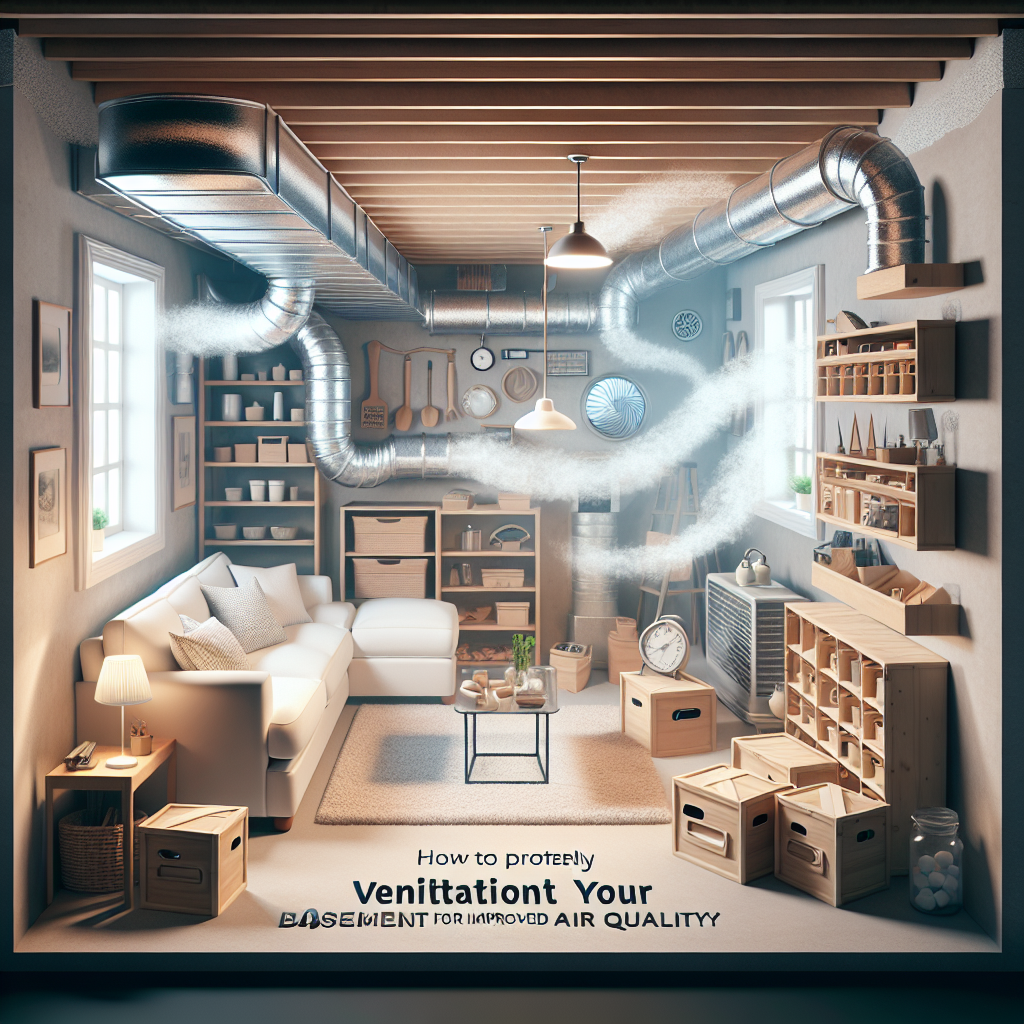A well-ventilated basement is essential for maintaining a healthy home environment. Poor air quality can lead to unpleasant odors, mold growth, and even health issues. In this article, we’ll guide you through effective strategies to improve the ventilation in your basement, ensuring fresh air circulation and enhanced living conditions. Let’s dive deep!
Why Basement Ventilation is Important
Basements often become a catch-all for moisture, dust, and stagnant air. Here’s why proper ventilation matters:
Reduces Mold and Mildew Growth
Basements are prone to dampness, which can foster mold and mildew. These fungi thrive in humid conditions, where their presence can lead to respiratory issues and allergic reactions. Improved ventilation helps regulate humidity levels, making it difficult for these unwanted guests to settle in.
Enhances Air Quality
Stale air can accumulate unwanted odors and harmful pollutants. Proper ventilation replaces old air with fresh air, improving the overall air quality in your basement. This is particularly important for homes with HVAC systems that may struggle to circulate air effectively.
Prevents Structural Damage
Excess moisture can compromise the structure of your home. When basement humidity levels rise, wooden beams and support structures may warp or rot. Effective ventilation minimizes this risk, safeguarding your basement and your home’s integrity.
Signs Your Basement Needs Better Ventilation
Understanding the need for ventilation is the first step. Look out for these warning signs:
- Musty Odors: A persistent damp smell often indicates trapped moisture.
- Condensation: Water droplets forming on walls or pipes are clear signs of high humidity.
- Visible Mold: If you spot mold growth, it’s time to address ventilation issues.
- Dust Accumulation: An increase in dust can signify stagnant air and poor circulation.
Methods to Improve Basement Ventilation
Now that you understand the importance of good ventilation, let’s explore effective methods you can implement.
1. Install Windows and Vents
Natural ventilation is one of the simplest approaches. If your basement has windows, keep them open whenever weather permits. Consider installing vent grills that allow air exchange without compromising security. Use adjustable vents to control airflow during different seasons.
2. Use Exhaust Fans
Exhaust fans are an excellent addition for reducing humidity levels. Install them in areas prone to moisture, such as bathrooms or washing machines. These fans expel stale air and bring in fresh air, effectively lowering humidity levels.
3. Invest in a Dehumidifier
If you live in a particularly humid area, a dehumidifier can be a game changer. These devices help extract excess moisture from the air, making your basement less conducive to mold growth. For optimal performance, position the dehumidifier centrally and ensure adequate drainage.
4. Improve Air Circulation
Enhance air movement with ceiling fans or box fans. Placing a fan in a window, facing out, can help expel stale air while bringing in fresh air from other areas of your home. Ensure that your basement is not overcrowded; removing unnecessary clutter can also aid in airflow.
5. Ensure Your HVAC System is Working Properly
If your basement is part of your home’s heating and cooling system, ensure the HVAC ducts are clean and free of obstructions. Schedule regular maintenance checks to keep your system operating efficiently. Consider installing a fresh air intake that brings outdoor air into your basement.
Additional Tips for Maintaining Basement Air Quality
- Seal Cracks and Gaps: Any cracks in walls or breaches in foundation can invite outdoor moisture. Use caulk or sealants to close these gaps effectively.
- Regular Cleaning: Dust and dirt can accumulate quickly in basements. Create a cleaning schedule to address these issues regularly.
- House Plants: Some indoor plants help purify the air. Consider adding varieties like Peace Lily or Spider Plant, which thrive in basements and enhance air quality.
Conclusion: Breathe Easy in Your Basement
Improving your basement’s ventilation is crucial for maintaining good air quality in your home. By implementing these strategies, not only will you create a healthier environment, but you’ll also protect your home from potential damage and increase comfort for your family.
Remember, your basement doesn’t have to be a neglected space. Embrace these ventilation techniques to ensure a fresh, inviting atmosphere. Breathe easy, knowing you’ve taken the necessary steps to keep your basement in top condition!
By following these practical steps, you’re not only enhancing your living space but also making a smart investment in your health and home. If you have questions or need professional assistance on your ventilation journey, don’t hesitate to reach out to experts who can provide tailored guidance. Fresh air is just a step away!


